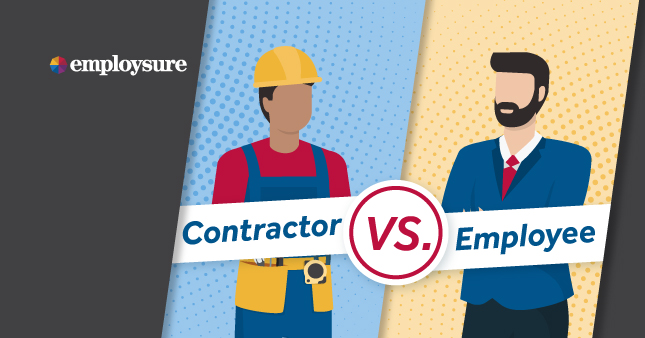
Contractors are heavily relied upon throughout New Zealand businesses, and can be viewed as a crucial part of the workplace. Sometimes, however, understanding the difference between a contractor and an employee can be a little confusing.
There have been notable concerns throughout workplaces when it comes to defining contractors, mainly due to the true nature of the employment relationship being hard to classify. In addition, the relationship between employer and contractor can change over time and if the negotiation and contractual proceedings are not updated, you could be in breach of the Employment Relations Act (ERA), resulting in possible penalties and back payment of unpaid entitlements. Sadly, the associated penalties for such an incident can be significant, impacting both the employer personally and the businesses.
It is important for all employers to know that regardless of the differences between employees and contractors, the Health and Safety at Work Act 2015 applies to all classifications of workers.
What is a contractor?
A contractor is defined as being engaged under a contract for services, commonly called an independent contractor agreement, as opposed to an employee who works under a contract of service. Contractors are also defined as self-employed, invoicing the principal (or employer) for their services. An important difference to also note is that generally speaking, a contractor must pay their own tax and ACC levies.
Contractors do not fall under most general employment legislation such as the ERA and the Holidays Act 2003, meaning they do not need to have a written employment agreement, and are not entitled to minimum wage or other employment entitlements, such as paid statutory holidays or sick leave. In addition, there are no requirements for employers to keep time and wage records for contractors.
It is important to note that a contractor can raise the claim that they are in fact an employee, and ask the Employment Relations Authority to investigate, and make a determination on the status of the relationship. If the Employment Relations Authority finds that an employer has engaged someone as a contractor to avoid paying minimum entitlements they can hand down penalties, and the employer will have to pay the employee any outstanding entitlements.
How to identify an employee
An employee is a person who falls under an employment agreement and works in return for a wage or salary.
All employees are entitled to the minimum employment rights under employment legislation, which includes pay (minimum wage or above) and access to holidays and other types of leave. Employers must ensure all employees have a compliant written employment agreement in place and that they keep a record of this, and other items such as wages, hours and all leave taken.
Employees also have the right to raise personal grievances for unjustified dismissal and unjustifiable disadvantage.
Tips to identify a contractor
While the courts have established legal tests such as the intention test, control vs independence test, integration test and the fundamental/economic reality test to assist in determining the difference between a contractor and employee, summarised below are some questions to consider when thinking about the relationship with your worker.
Employers who answer yes to the following questions, and do not consider the person an employee but a contractor, should consider redefining the relationship.
Is the individual required to wear a uniform with your branding on it?
Does the individual have limited control over how they conduct their work?
Does the individual use equipment supplied to them?
Are weekly hours and times of work set by you, the employer?
Does the individual receive the differing types of leave such as holiday leave?
Does the individual get reimbursed for work related expenses such as petrol and travel?
Are they engaged on a continual basis?
Employsure is here to help you navigate the potentially confusing definitions associated with employment. Our advice line is available day or night, so feel free to contact us whenever engaging new staff to ensure you are meeting your obligations.
Get Workplace Advice Now
Call Our Team of Expert Advisers Who Will Help You with Your Workplace Questions.







